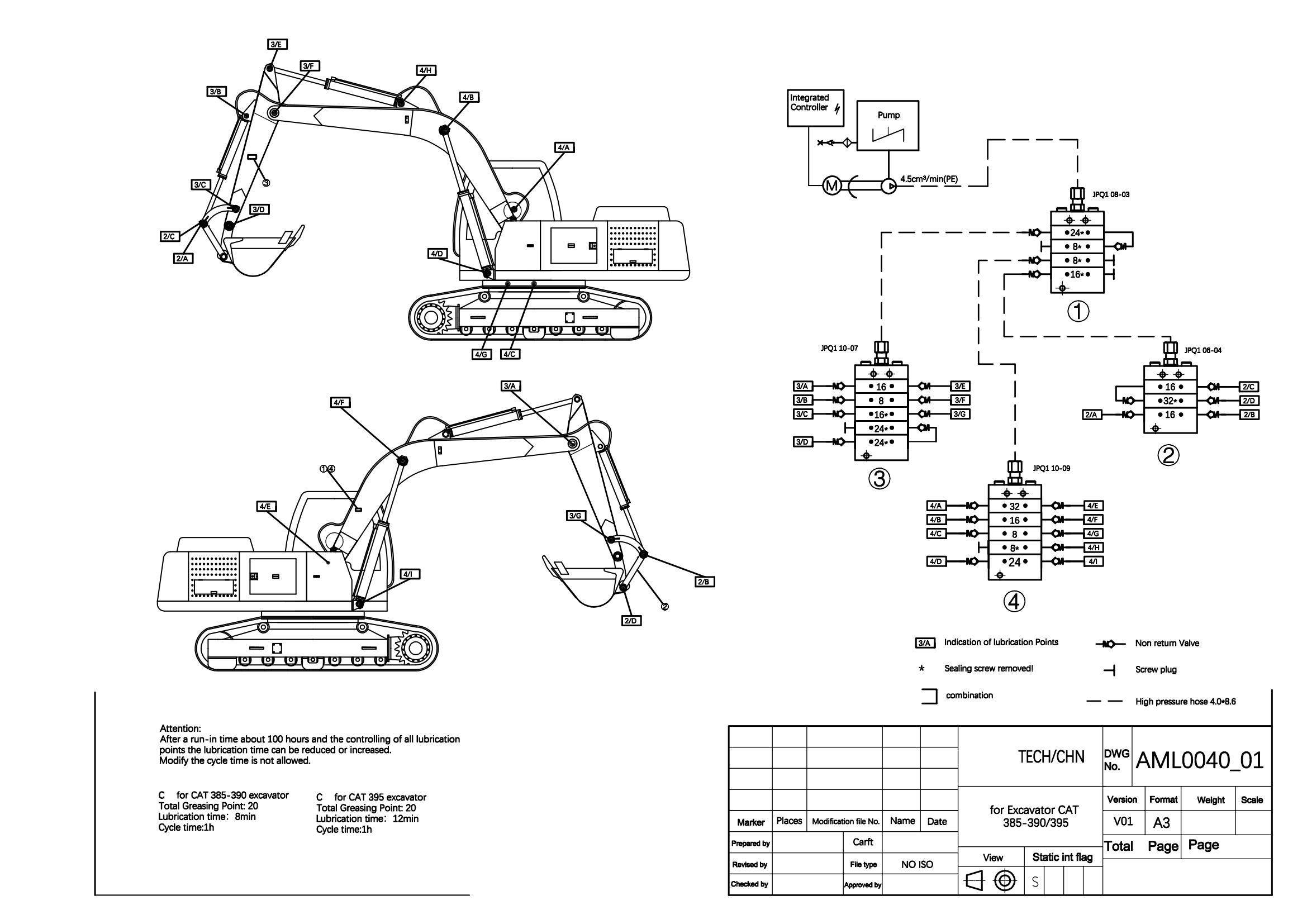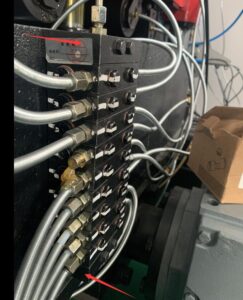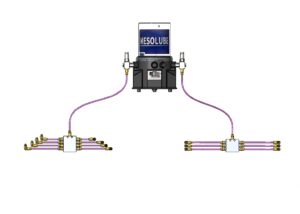.
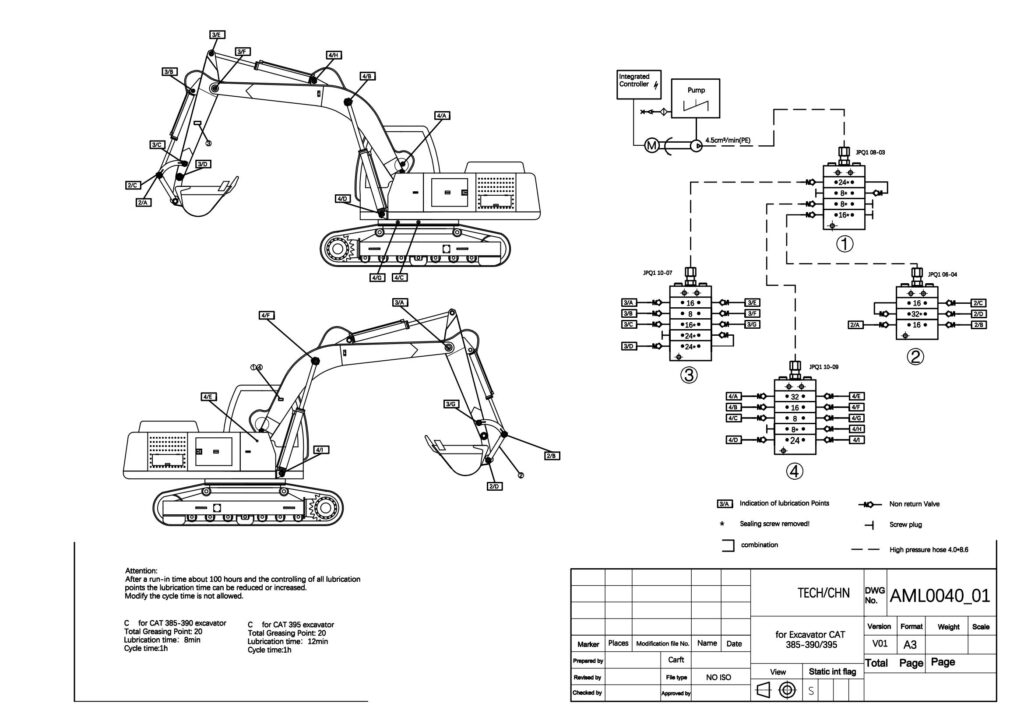
Understanding the Functions of Lubricants
- Reducing Friction and Wear: Lubricants create a protective layer between moving parts, minimizing wear and tear. This enhances efficiency and reduces maintenance requirements.
- Protection Against Corrosion: Harsh environmental conditions can lead to metal corrosion. Lubricants act as a barrier, preventing direct contact with moisture and chemicals.
- Controlling Contamination: Formulated to resist dust and dirt ingress, lubricants keep internal components clean, maintaining machinery efficiency.
- Temperature Management: Lubricants dissipate heat from moving parts, preventing overheating and associated damage.
Types of Lubrication Systems
- Automatic Progressive Lubrication System:
- This system gradually delivers lubricant to various points in the excavator.
- It uses progressive divider blocks to distribute grease or oil.
- These systems are reliable and suitable for heavy machinery like excavators.
- Centralized Automatic Lubrication System:
- A centralized system delivers lubricant to multiple points simultaneously.
- It ensures consistent lubrication and reduces manual effort.
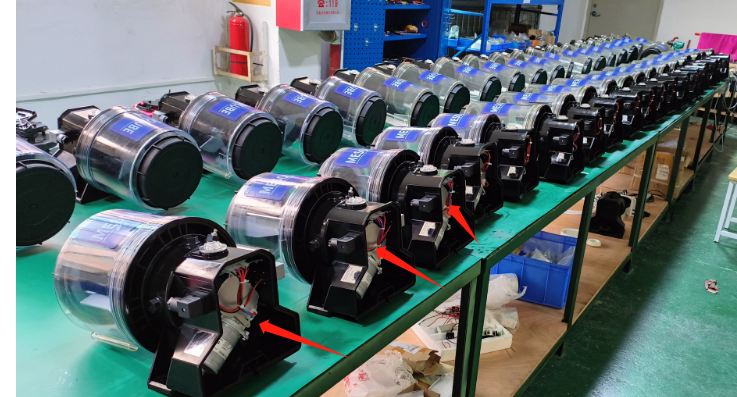
Factors to Consider
- Application:
- Consider the excavator’s specific requirements, such as load, operating conditions, and environmental factors.
- Cost:
- Evaluate the initial investment, maintenance costs, and long-term savings.
- Real-World Applications:
- Learn from case studies and industry experts to understand practical benefits.
- Consult Experts:
- Reach out to lubrication system providers or consult with maintenance professionals to tailor the system to your excavator’s needs.
Remember that a well-designed lubrication system not only enhances performance but also contributes to the overall durability of your excavators12. ?️?
